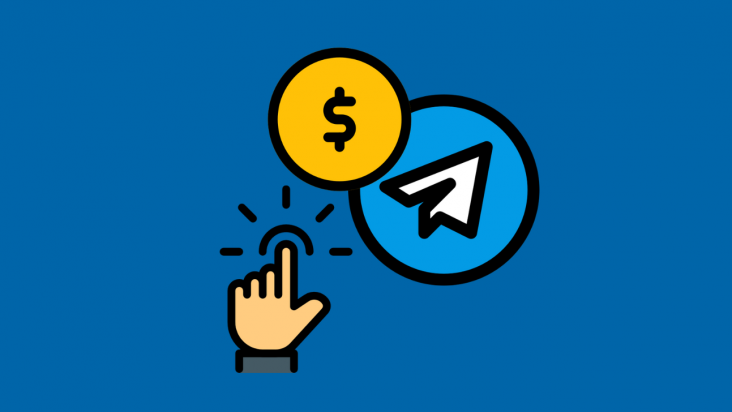

Choosing the right publisher is a crucial decision that can significantly impact the success of your game. A good publisher can provide the necessary funding, resources, and expertise to bring your game to market effectively. They can help with marketing, distribution, and even aspects of game development, such as quality assurance and localization. On the other hand, a poor choice can lead to misaligned goals, insufficient support, and missed opportunities.
The goal of this article is to provide game developers with a comprehensive guide on how to find the perfect publisher, offering practical steps and insights to ensure a successful partnership and maximize the potential of their game.
Impact on Game Success
- Financial Backing: Publishers often provide the financial resources needed for development, marketing, and distribution. This can mean the difference between a game that barely makes it to market and one that launches successfully with robust promotional support.
- Marketing Expertise: Experienced publishers have established channels and strategies for marketing games. They can help create buzz and reach a wider audience than you might be able to on your own.
- Industry Connections: Publishers have relationships with key players in the industry, including platform holders, media outlets, and influencers. These connections can facilitate smoother processes and better opportunities for exposure.
Role of Publishers in Game Development and Marketing
- Quality Assurance: Publishers typically have dedicated QA teams to rigorously test your game, ensuring it meets high standards of quality before release.
- Localization: For games intended for international markets, publishers often handle the localization process, translating and adapting the game for different regions and languages.
- Distribution: Publishers manage the distribution channels, whether digital or physical, ensuring that your game is available to your target audience.
- Post-Launch Support: Good publishers provide ongoing support after the game’s release, helping with updates, patches, and additional content.
Understanding Your Game and Its Market

- Defining Your Game
To find the right publisher, first define your game’s genre, target audience, and unique selling points. Identify the genre (e.g., action, adventure, RPG) to align your strategies with player and publisher expectations. Determine your target audience by considering demographics like age, gender, gaming preferences, and location to tailor your design and marketing. Highlight what makes your game unique, such as a distinctive gameplay mechanic, storyline, art style, or technology, to effectively pitch to publishers.
- Market Research
Thorough market research helps you understand the landscape and position your game for success. Regularly review industry reports and publications to stay updated on trends, popular genres, emerging technologies, and player preferences. Engage with gaming communities and social media to gather player feedback, guiding your development to create a resonant game. Use data analytics tools like SteamSpy and Sensor Tower for insights on game performance, player demographics, and trends.
Understanding your competition is crucial. Identify key competitors in your genre and study their strengths, weaknesses, pricing, and user reviews to refine your game. Perform a SWOT analysis (Strengths, Weaknesses, Opportunities, Threats) to understand the market landscape and identify areas for your game to excel. Determine where your game fits in the market, whether offering something new or improving existing concepts, to attract players and publishers.
- Setting Goals
Setting clear, achievable goals is essential. Define realistic sales targets based on market research and competitive analysis, considering best-case, worst-case, and most likely scenarios. Set player outreach goals, including initial launch metrics and long-term engagement metrics such as community retention and growth. Aim for specific review scores or praise from critics and influencers, as high critical acclaim can increase visibility and credibility, attracting more players and publishers.
By understanding your game and its market, you’ll be well-prepared to create a compelling pitch and find a publisher that aligns with your vision and goals, presenting your game in the best possible light and maximizing your chances of success.
Preparing Your Pitch

When preparing your pitch, start with a compelling pitch deck. The pitch deck should clearly present your game concept, highlighting the core gameplay mechanics, unique features, and art style. Include key components such as:
- Game Concept: Provide a brief overview of your game’s story, genre, and main objectives.
- Gameplay: Describe the core gameplay loop, controls, and any innovative mechanics that set your game apart.
- Art Style: Showcase the visual aesthetic with concept art, character designs, and in-game screenshots.
- Development Team: Introduce your team, emphasizing their experience and previous work.
- Market Potential: Present data on your target audience, market trends, and competitive analysis.
For a visually appealing presentation, use high-quality images, keep text concise, and maintain a consistent design throughout the deck. Use bullet points and infographics to make information easily digestible.
Developing a Prototype or Demo
Creating a playable prototype or demo is crucial. It gives publishers a tangible experience of your game, demonstrating its potential. A prototype should showcase the core mechanics and visual style, even if it’s not fully polished. Focus on creating a stable build that highlights the unique aspects of your game. Technical considerations include ensuring the demo runs smoothly on target platforms and is easy to install and play.
Crafting a Press Kit
A comprehensive press kit is essential for promoting your game. It should include high-quality screenshots, an engaging trailer, and other promotional materials like logos and banners. These assets help publishers visualize how the game will be marketed. Gather any media coverage and reviews your game has received, as positive press can enhance your pitch. Ensure all materials are organized and easily accessible, providing a professional and polished image of your game.
By meticulously preparing your pitch deck, prototype, and press kit, you’ll create a strong, professional presentation that effectively communicates the potential of your game to publishers.
Identifying Potential Publishers
- Researching Publishers
To identify potential publishers, start by conducting thorough research using various methods. Attend industry events such as game conventions, expos, and networking meetups to meet publishers and learn about their interests. Utilize online databases and directories, likeGamesIndustry.biz and Game Developer, which list publishers and provide valuable insights into their focus areas.
When selecting publishers, consider criteria such as genre specialization and market presence. Look for publishers who have a history of working with games similar to yours, as they will have a better understanding of your target audience. Also, evaluate their market presence to ensure they have the capability to promote and distribute your game effectively.
- Publisher Profiles
Next, create profiles of top publishers in your genre. For each publisher, analyze their portfolio to understand the types of games they have successfully launched. Look at the publishers’ track records, focusing on the performance of their games in terms of sales, critical reception, and player reviews. Assess their marketing strategies and post-launch support to gauge how well they can help your game succeed.
- Indie vs. Major Publishers
Deciding between indie and major publishers involves weighing the pros and cons of each. Indie publishers often provide more creative freedom and personalized support, making them a good fit for unique or niche games. They might offer flexible contract terms and be more approachable for smaller studios. They may have limited resources for marketing and distribution compared to major publishers.
Major publishers, on the other hand, can provide substantial financial backing, extensive marketing resources, and strong distribution networks, which can significantly boost your game’s visibility and sales. They might impose stricter contract terms and exert more control over the game’s development and creative direction.
Approaching Publishers – Initial Contact

When making initial contact with a publisher, crafting a well-structured and engaging introduction email is crucial. Start with a personalized greeting, addressing the recipient by name. Briefly introduce yourself and your studio, mentioning any notable achievements. Clearly and concisely describe your game, highlighting its unique selling points and genre. Attach a concise pitch deck, a link to a playable demo or prototype, and your press kit. Conclude with a polite call to action, inviting the publisher to discuss the game further. Ensure the email is professional, free of errors, and visually appealing.
Networking at Industry Events
Industry events provide invaluable opportunities to meet publishers face-to-face. Prepare by researching attendees and planning who you want to connect with. Have a succinct elevator pitch ready that clearly articulates your game’s concept and unique aspects. Bring business cards and physical copies of your pitch deck. Engage in conversations, be genuinely interested in others’ work, and follow up after the event with personalized emails to reinforce the connections you made.
Pitch Meetings
A successful pitch meeting requires thorough preparation. Tailor your pitch to the publisher’s interests, emphasizing aspects of your game that align with their portfolio. Practice your presentation multiple times to ensure clarity and confidence. Use your pitch deck to guide the presentation, highlighting the game concept, gameplay mechanics, art style, and market potential. Ensure your prototype or demo is polished and ready to showcase. Dress professionally and arrive early to set up and test any equipment you’ll be using.
Handling Q&A Sessions
Handling Q&A sessions effectively can make or break your pitch. Anticipate potential questions and prepare clear, concise answers. Questions may cover technical aspects, market strategy, financial projections, and development timelines. Stay calm and composed, even if faced with difficult or critical questions. If you don’t know an answer, it’s better to admit it and offer to follow up later than to provide incorrect information. Use this opportunity to demonstrate your knowledge, passion, and readiness to collaborate.
By mastering initial contact, networking, and pitch meetings, you’ll significantly improve your chances of securing a partnership with the right publisher for your game.
Recap of Key Points
This guide covered essential steps for finding the perfect publisher for your game. We discussed understanding your game and market, emphasizing the importance of defining your genre, target audience, and unique selling points. We highlighted the need for market research and setting clear goals for sales, audience reach, and critical reception. Preparing a compelling pitch, including a detailed pitch deck, a playable prototype, and a comprehensive press kit, was crucial. Lastly, we stressed the importance of handling Q&A sessions professionally.
Thorough research and meticulous preparation are crucial for success. Understanding your game and market ensures you can present your project convincingly. Detailed market research helps you position your game strategically, and well-defined goals provide clear direction. A polished pitch, supported by a solid prototype and press kit, demonstrates professionalism and readiness, making your game more attractive to publishers. Identifying the right publishers through careful research ensures better alignment with your game’s vision and needs.
We have prepared a comprehensive list of game publishers, available for purchase. This curated list provides valuable insights into each publisher’s portfolio, market focus, and contact information, saving you time and effort in your search for the perfect publishing partner. With this resource, you’ll be able to quickly identify publishers that align with your game’s genre and vision, enhancing your chances of securing a successful and fruitful partnership.








